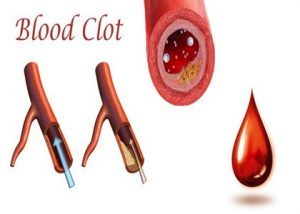- Home
- Editorial
- News
- Practice Guidelines
- Anesthesiology Guidelines
- Cancer Guidelines
- Cardiac Sciences Guidelines
- Critical Care Guidelines
- Dentistry Guidelines
- Dermatology Guidelines
- Diabetes and Endo Guidelines
- Diagnostics Guidelines
- ENT Guidelines
- Featured Practice Guidelines
- Gastroenterology Guidelines
- Geriatrics Guidelines
- Medicine Guidelines
- Nephrology Guidelines
- Neurosciences Guidelines
- Obs and Gynae Guidelines
- Ophthalmology Guidelines
- Orthopaedics Guidelines
- Paediatrics Guidelines
- Psychiatry Guidelines
- Pulmonology Guidelines
- Radiology Guidelines
- Surgery Guidelines
- Urology Guidelines
Statins could prevent Venous Thromboembolism: Lancet Study

Statins could hold the key to eradicating one of the most preventable causes of hospital deaths after researchers uncovered a new role for the cholesterol-lowering pill.
The medication, commonly used to prevent heart attacks, reduces the threat of a condition affecting millions globally called venous thromboembolism (VTE), where blood clots form in the vein in the lungs or in limbs, by between 15 and 25 per cent.
The conclusion was made following a thorough analysis of 36 studies involving more than 3.2 million people as part of new research published in The Lancet Haematology. It was supported by NIHR Collaboration for Leadership for Applied Health Research and Care (CLAHRC) East Midlands and the NIHR Leicester-Loughborough Diet, Lifestyle and Physical Activity Biomedical Research Unit.
The results of the summary compiled by researchers from Leicester Diabetes Centre and the University of Bristol provide an "extensive body of evidence on the clinical benefit of statin in the occurrence of VTE."
The finding could potentially lead to new guidelines and an expansion of the use of treatment, which is already established in cardiovascular disease prevention.
Co-investigator Professor Kamlesh Khunti, Professor of Primary Care Diabetes & Vascular Medicine at the University of Leicester, Director NIHR CLAHRC East Midlands and Co-Director of the Leicester Diabetes Centre, said: "These findings underscore a potential beneficial role of statin therapy on VTE in addition to its established role in cardiovascular disease prevention."
Lead researcher Dr Setor Kunutsor, from the University of Bristol's Musculoskeletal Research Unit, added: "Currently, statins are only approved for lipid lowering in the primary and secondary prevention of cardiovascular disease.
"But they have shown great promise beyond their established lipid-lowering effects and these include potential beneficial impact on multiple disease conditions.
"These results provide an extensive body of evidence on the clinical benefit of statin in the occurrence of VTE and may support a true protective effect."
You can read the full Article by clicking on the link :
Setor K Kunutsor, Samuel Seidu, Kamlesh Khunti. Statins and primary prevention of venous thromboembolism: a systematic review and meta-analysis. The Lancet Haematology, 2017; DOI: 10.1016/S2352-3026(16)30184-3

Disclaimer: This site is primarily intended for healthcare professionals. Any content/information on this website does not replace the advice of medical and/or health professionals and should not be construed as medical/diagnostic advice/endorsement or prescription. Use of this site is subject to our terms of use, privacy policy, advertisement policy. © 2020 Minerva Medical Treatment Pvt Ltd